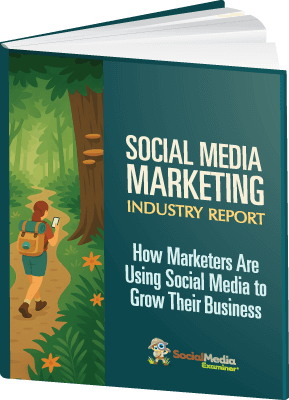Have you noticed that the way we work is shifting but can’t quite pin down what’s changed or how to keep up? Are you trying to stay ahead of AI trends while juggling the demands of growing a business or brand?
Many marketers and small business owners feel the pressure to try new things but aren’t sure where to begin, especially as AI continues to disrupt every facet of work at lightning speed.
This article explores how AI is empowering small businesses by redefining discovery, decision-making, content strategy, and customer engagement. The article also covers the rise of autonomous AI agents, their real-world use cases, and the organizational shifts marketers need to prepare for.
Whether you're experimenting with generative tools or seeking smarter ways to scale, this guide offers strategic clarity and practical foresight to help you adapt, stay relevant, and lead through change.
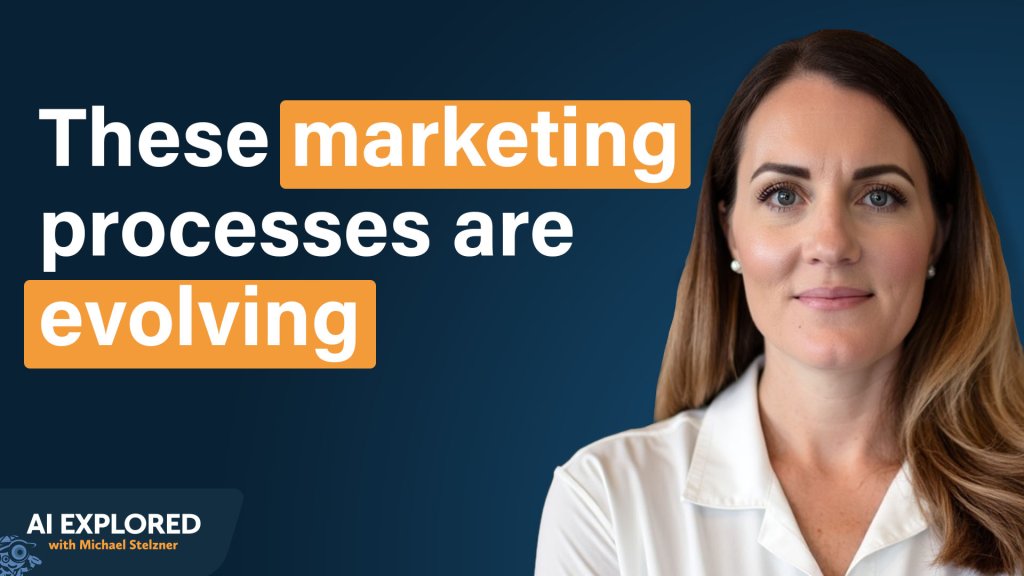
Why AI Transformation Matters for Modern Marketers and Small Businesses
The artificial intelligence revolution isn't coming; it's already here, and every aspect of how we conduct business is being reshaped. For marketers and business owners, understanding this transformation isn't just about staying competitive; it's about surviving and thriving in a fundamentally different business landscape.
Amanda Cole, chief marketing officer at Bloomreach, an agentic platform for personalizing every step of the customer's journey, has witnessed this transformation firsthand. With a career spanning from the early days of digital marketing through today's AI revolution, she offers a unique perspective on how dramatically the business world is changing.
“I would say I have failed my way into this position for sure,” Cole explains, describing her journey from non-profit direct mail campaigns to leading marketing at an AI-driven company. Her experience spans the evolution from control packages and A/B testing for charitable donations to the sophisticated AI agents that now orchestrate entire marketing campaigns.
Cole's lightbulb moment with AI came during a vendor meeting when she realized the same data used to write an email could instantly create a handoff document for sales teams. “Within five minutes, using the exact same data, the exact same infrastructure to write an email, the tool was able to complete a handover document,” she recalls. This moment crystallized a fundamental truth: the limitations of traditional workflows and systems no longer matter when AI can communicate naturally with computers.
The Small Business Advantage
Small business owners possess a significant advantage in this AI transformation. Unlike large organizations burdened with complex systems and established processes, smaller companies can leverage AI to leapfrog competitors who are struggling to reinvent their existing infrastructure.
Consider Performance Max (PMAX) capabilities in Google Ads. Small businesses can now utilize Google's AI functionality to address specific audiences with automated content creation and ad creation that would have previously required specialized teams and significant resources. Beyond advertising, AI enables rapid content creation, website updates, and even product catalog management for e-commerce businesses.
“If you're a small business and you don't have an infrastructure of people, you don't have merchandisers and marketers and things who need to reinvent the way that they work, you'll be able to leverage this technology to move very fast in a way that larger companies are going to struggle with,” Cole explains.
The End of Tool-Based Specialization
The marketing industry has developed highly specialized roles based on the tools and systems required to execute specific functions. Email marketing specialists exist because complex tools, systems, and processes are needed to master email optimization. Similarly, SMS marketing, website optimization, and social media management have each spawned their own specializations.
AI is fundamentally disrupting this specialization model. The constraints that created these specialized roles are disappearing as AI enables natural language communication with systems. Instead of mastering specific tools, marketers can focus on business objectives and outcomes.
“If you've tied your value to, I know how to use this tool or this piece of tech, instead of I know how to deliver a business outcome, I think the transition for you will be more difficult,” Cole warns. The opportunity lies in getting closer to the end objective: developing and creating great customer experiences and relationships.
Ready to Supercharge Your Marketing Strategy?
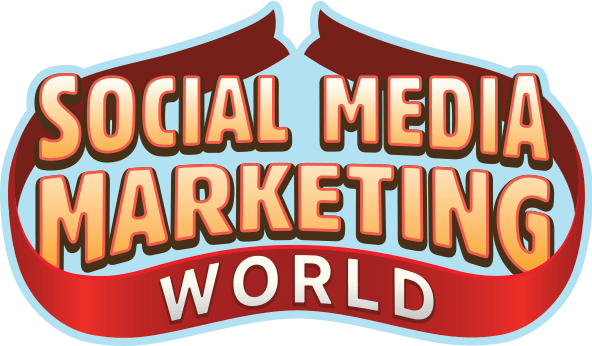
Get expert training and an unbeatable conference experience when you attend Social Media Marketing World—from your friends at Social Media Examiner.
Broaden your reach, skyrocket your engagement, and grow your sales. Become the marketing hero your company or clients need!
🔥 Save $810 on an All-Access ticket. Sale Ends Friday! 🔥
GET THE DETAILSA Critical Period for Women in Technology
The AI transformation presents both challenges and opportunities for women in the workforce. Research shows that women do twice as much non-work-related work—caring for children, pets, food preparation, and household management—compared to their professional responsibilities. This double burden makes it particularly challenging to dedicate time to learning new technologies.
However, this period of reinvention also creates unprecedented opportunities. “The time is now for especially women to get overly invested in this because otherwise I do think we can get out-innovated,” Cole emphasizes. The rapidly evolving technology landscape means the existing male-dominated advantage in technology could be reset, but only if women actively engage with AI tools and understanding.
The recent launch of ChatGPT's agent capabilities, including integration with Shopify for completing purchases directly within the platform, demonstrates how quickly the landscape is evolving.
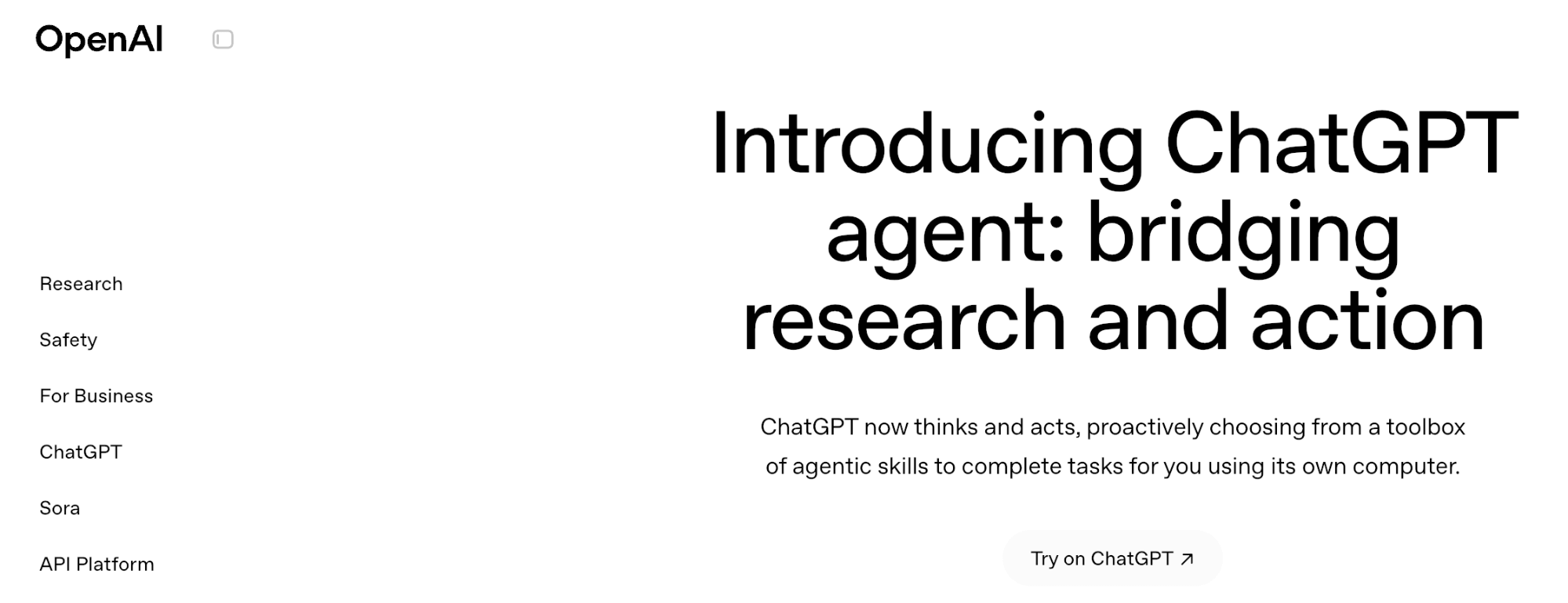
Women must invest time in understanding and experimenting with these tools despite the challenge of finding that time amid existing responsibilities.
#1: 5 Ways AI Is Changing Marketing Systems and Structures
The fundamental paradigm of how people discover and consume information is shifting dramatically, requiring businesses to completely rethink their systems and approaches to reaching customers.
From Search to Contextual Discovery
For decades, Google has functioned as a massive database catalog of information. Users learned to structure keyword searches to receive lists of potential responses, then manually sorted through ten-page listings to find answers to their questions. AI's ability to provide contextual, synthesized responses is disrupting this entire system.
Cole illustrates this shift with a personal example: “I have very curly hair, and so I might ask for advice on helping me find a very moisturizing shampoo and conditioner. If I type that search into Google, I would get a list of people who paid for those keywords and then people who probably have some content related to those keywords. But I would have to go and figure out for myself which is the best response.”

With ChatGPT and similar AI tools, users now receive answers with explanations, context about why specific products are recommended, and even warnings about products to avoid based on customer reviews. This represents a fundamental shift from user-driven discovery to agent-mediated discovery.
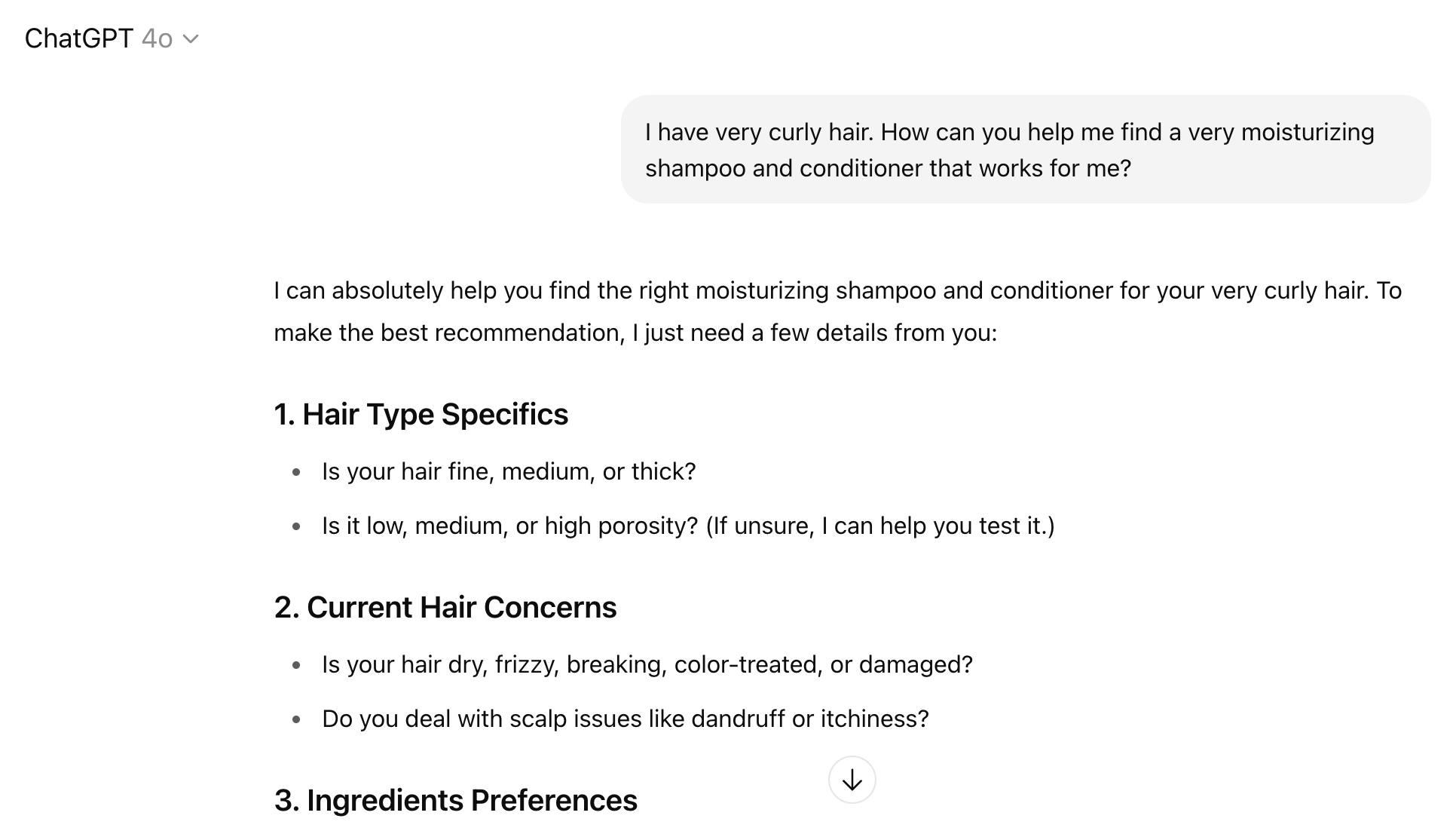
The Disintermediation of Brand Control
This transformation creates what Cole calls “disintermediation”—businesses no longer own the search experience. How companies tell their stories, build their brands, and invest in keyword strategies is being disrupted by AI agents that control how brands appear to consumers and in what priority order.
“We're calling this disintermediation. So you are no longer owning that search experience. How you tell that story, the way that you brand it, and how much you pay for the keywords are being disrupted by what's happening on the consumer experience side,” Cole explains.
This shift forces businesses to reconsider their fundamental approach to customer connection. Instead of optimizing for search algorithms and keyword rankings, companies must think about creating value, building relationships, and connecting with customers in a world where AI agents mediate these interactions.
From Content Marketing to Context Marketing
Traditional content marketing focused on creating content optimized for searches, hoping to appear when people looked for solutions to specific problems. Context marketing represents a fundamental shift in this approach.
In a context-driven world, businesses must be prepared to reassemble real-time content pieces to answer any customer question. Instead of creating static content for predetermined search queries, companies need flexible content components that AI can dynamically combine to provide personalized, contextual responses.
Cole envisions a future where, instead of navigating a pre-constructed website with fixed navigation, customers can build their own experiences by describing what they're looking for and the problems they're trying to solve. Companies would then create digital experiences tailored to individual customer contexts and needs.
The Changing Role of Websites
While websites may seem less important in an AI-mediated world, they're becoming more crucial. Websites now serve less as discovery mechanisms and more as validation and decision-making tools.
The process has shifted: AI helps with initial research and recommendations, but humans still want to visit websites to confirm decisions, especially for complex or high-value purchases. Websites are evolving from broad discovery tools to focused conversion and credibility instruments.
Additionally, AI agents actively crawl and analyze website content to inform their recommendations. This means websites must be optimized for AI consumption and understanding, not just human navigation and search engine rankings. The content must be structured and comprehensive enough for AI agents to accurately represent the business in recommendations.
The Growing Importance of User-Generated Content
In an AI-driven discovery world, user reviews, customer testimonials, and user-generated content on platforms like Quora and Reddit become increasingly important. These authentic, user-driven content sources serve as critical feedback loops for AI agents making recommendations.
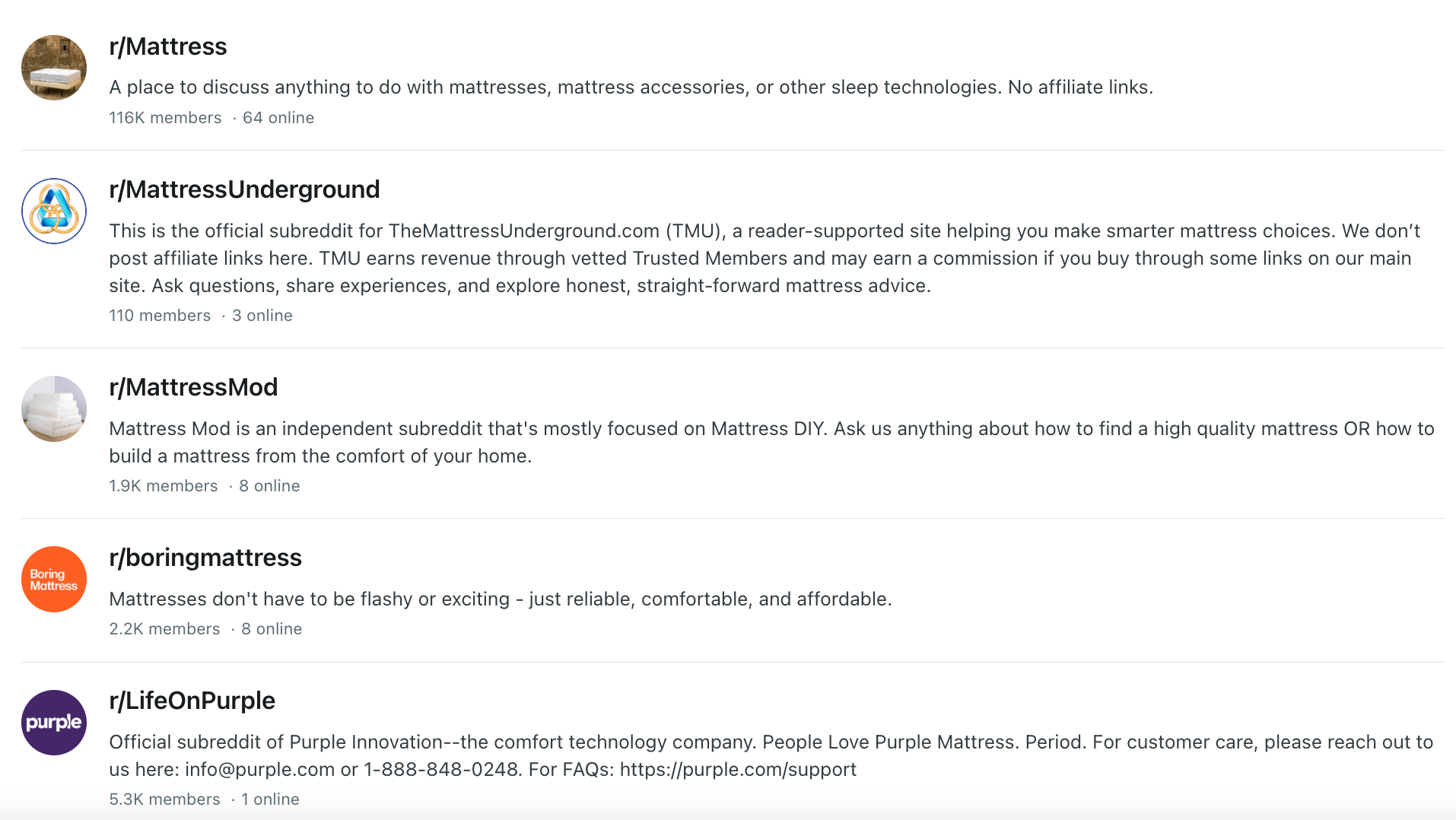
“I think it becomes about a focus less on brand-initiated content creation, and really on activating customers to be advocates and speak on our behalf,” Cole explains. While marketers have always known that customer advocacy provides the most valuable opportunities, controlling and systematizing it has been difficult. In an AI-mediated world, customer advocacy becomes even more critical for business success.
Businesses must shift focus from creating promotional content to inspiring and enabling customers to share authentic experiences and recommendations. This requires developing programs and strategies that encourage genuine customer advocacy rather than traditional marketing content creation.
#2: How Marketers Can Navigate the Near Future of AI and Work
The next twelve to eighteen months represent what Cole describes as a “Wild West” period—a time of rapid experimentation, unclear processes, and unprecedented opportunities for those willing to embrace uncertainty and agility.
AI Is No Longer Optional for Marketers—Ready to Master It?

Join over a thousand forward-thinking marketers at AI Business World—a conference-in-a-conference at Social Media Marketing World.
Get two days of practical AI training where you'll discover:
✅ Systems that 3x your output—leaving time for strategy and creativity
✅ Proven strategies you can deploy right away—no guesswork, no wasted budget
Become the indispensable AI expert your company needs.
GET YOUR TICKETS—SAVE $310The Challenge of Rapid Technological Evolution
Technology is currently evolving and innovating faster than at any point in history. What would have traditionally taken five to ten years of development is now happening in weeks and months. This acceleration creates a fundamental challenge: technology capabilities far exceed human readiness to adapt and implement these capabilities effectively.
“Technology is evolving and innovating faster than anything we've ever seen. And so technology, what technology can technically do is way ahead of what humans are ready for it to do,” Cole observes. This applies both to workers who must adapt their skills and processes, and to consumers who receive AI-generated content and experiences.
The rapid pace creates exhaustion among professionals trying to evaluate and implement new tools. Many organizations find themselves overwhelmed by the number of AI solutions promising quick results through proof-of-concept trials and rapid implementation timelines.
Balancing Growth and Human Development
Business leaders face a complex ethical and practical challenge: how to pursue growth opportunities through AI while simultaneously training and mentoring their human teams. This tension between efficiency and human development will define much of the organizational decision-making in the coming months.
“I'm responsible for growing my business, but I'm also responsible for training and mentoring my team. So how do I hold both of those things and make the right decisions?” Cole explains. Organizations must determine whether AI implementation serves growth objectives, efficiency improvements, or both, while considering the impact on their workforce.
The decisions made during this period will shape company culture and employee development for years to come. Leaders must balance the competitive pressure to adopt AI quickly with the responsibility to prepare their teams for an AI-integrated future.
The Reset of Organizational Structures
Integrating AI agents into business operations will require fundamental changes to organizational structures, roles, and responsibilities. Traditional department silos—such as separate teams for email marketing, web development, and SMS campaigns—will need to be restructured as AI agents can execute across multiple channels and functions.
“I think we'll need to see more coming together of those resources, which gives you the opportunity to learn different roles, different capabilities, so that you're also expanding your own knowledge set as we go into an AI-driven future,” Cole explains.
This restructuring creates opportunities for professionals to expand their skill sets and knowledge across previously siloed areas. Instead of deep specialization in single tools or channels, the future workforce will need a broader understanding of multiple functions and the ability to work alongside AI agents across various business processes.
The Importance of Intergenerational Collaboration
The AI transformation creates a unique opportunity for intergenerational collaboration in the workplace. Cole envisions the incoming generation as “AI native users” who can be paired with experienced professionals who understand how to prompt and guide AI systems to produce accurate outputs.
“If that generation paired with the experts who can really help them prompt and guide and train AI in order to provide accurate outputs, I think we'll see some very good intergenerational collaboration that will hopefully make teams quite a bit better,” she explains.
This collaboration model recognizes that AI expertise isn't just about knowing how to use tools—it requires domain knowledge to prompt AI systems and evaluate their outputs properly. Young professionals bring native comfort with AI tools, while experienced professionals contribute the expertise needed to ensure AI produces valuable, accurate results.
Preparing for Overwhelming Change
The pace and scope of AI transformation can feel overwhelming, but Cole offers practical advice for managing this challenge. The first step is acknowledging and accepting the overwhelming nature of the change without self-judgment.
“Accept that you're overwhelmed, accept that it is overwhelming, and there's nothing wrong with that or with you if you are feeling overwhelmed,” she advises. Once this acceptance is established, focus should shift to identifying the biggest problems that need solving.
Rather than trying to implement AI across all business functions simultaneously, organizations should select specific, high-impact problems and apply AI comprehensively to those areas. For example, suppose a business struggles with product returns. In that case, they might use AI to handle the entire return process: customer service inquiries, return processing, and even initial product selection optimization to reduce future returns.
The key is ensuring that AI implementation targets measurable business outcomes—improved profitability, increased revenue, or enhanced customer experience—rather than simply adopting technology for its own sake.
Embracing Failure as Part of the Process
Success in the AI transformation requires accepting that failure is inevitable and necessary for learning and improvement. Cole estimates that “eighty percent of the job is failing and failing fast,” drawing from both marketing experience and startup methodology.
This approach allows failed experiments to inform future attempts rather than deterring continued innovation. Given the experimental nature of current AI capabilities, most initial implementations won't work as expected. Organizations that can quickly identify failures, extract learning, and iterate will have significant advantages over those that become paralyzed by unsuccessful attempts.
The rapid pace of AI development means that solutions that don't work today might be viable in a few months, and approaches that work now might become obsolete quickly. This environment rewards agility, experimentation, and resilience over cautious planning and risk avoidance.
#3: Why AI Agents Are The Future of Marketing Automation
AI agents represent the next evolution of marketing automation, moving beyond rule-based systems to autonomous decision-making and execution. These agents can act independently, make complex decisions, and execute tasks without human intervention, fundamentally changing how marketing operations function.
An agentic platform orchestrates multiple specialized agents working together to accomplish complex tasks. As Cole explains, “We use agents that are pieces of technology that act autonomously and make decisions and then actually even execute. So it's beyond just AI. It's actual decisioning and execution without human involvement.”
For a simple email campaign, multiple agents must work in coordination: a design agent creates visual elements, a content agent writes copy, a journey agent determines timing and sequencing, and an optimization agent analyzes performance and makes improvements. The agentic platform manages and orchestrates these specialized agents to deliver personalized experiences.
This represents a significant evolution from traditional marketing automation, which required human setup of rules and workflows. Agentic systems can adapt, learn, and optimize their processes based on performance data and changing conditions.
Real-World Agent Implementation: Form Analysis and Lead Qualification
One of AI agents' most immediately practical applications in marketing is intelligent form processing and lead qualification. Cole's team at Bloomreach uses an agent through a tool called Qualified that automatically analyzes form submissions to determine prospect fit.
When someone submits a basic form with only first name, last name, and email address, the agent takes the email address and makes contextual assumptions about the person's company affiliation. It then researches whether that company fits Bloomreach's ideal customer profile (ICP).
For prospects who don't match the ICP, the agent automatically drafts a customized email explaining who would be a good fit for Bloomreach's services, provides pricing details, and asks if they would still like to schedule a meeting with this additional context. For prospects who do match the ICP, the agent allows immediate meeting scheduling.
This entire process—research, analysis, decision-making, and response—happens within minutes without human involvement. The system handles both qualification and immediate response, ensuring prospects receive relevant information quickly while protecting sales teams from unqualified leads.
“That's all done without humans being involved,” Cole explains. This use case is becoming widely adopted in B2B marketing because it addresses a common pain point: the time lag between form submission and response, combined with the challenge of qualifying leads efficiently.
Real-World Agent Implementation: Advanced Account Research and Content Creation
Cole's team also uses Copy.ai‘s agent capabilities for comprehensive account research and content creation at scale. They provide the system with their list of thirty-four thousand target accounts and request detailed research on each prospect's industry, buying group composition, and current technology stack.
The agents then conduct this research automatically and compile detailed analyses of how Bloomreach could replace elements of each prospect's current technology infrastructure. This research feeds into the creation of customized landing pages for each target account.
Copy's agents actually do the research, they do the technology assessment, they do the solution architecture of how that tech stack that they have could be replaced by Bloomreach, and then they write the content and compile the page and publish it,” Cole explains.
These personalized pages replace generic company information with content tailored to each prospect. Instead of standard case studies and generic messaging, prospects see examples relevant to their industry, solutions for their specific technology challenges, and content addressing their particular business context.
The sales team then uses these customized pages in their outreach campaigns, directing prospects to content created specifically for their situation. This approach transforms generic sales outreach into highly personalized, relevant communication that demonstrates a deep understanding of the prospect's business needs.
The Shift Toward Human Connection
Paradoxically, as AI agents handle more technical marketing tasks, the human elements of marketing become more valuable and important. Cole predicts in-person events will become increasingly significant as people crave authentic human interaction in an AI-saturated world.
“In marketing, I think we need to be even more focused on human connections. Like you said, in-person events I think will be huge,” she explains. The ability to validate the humanity behind companies and celebrate real customer outcomes becomes a competitive differentiator when much of the digital experience is mediated by AI.
This shift requires marketers to focus more on relationship building, authentic storytelling, and genuine community development. While AI handles the technical execution of campaigns, humans must focus on strategy, relationship management, and creating meaningful connections with customers and prospects.
Amanda Cole is an AI marketing strategist and chief marketing officer of Bloomreach, an agentic platform for personalizing each step of a customer's journey. Follow her on LinkedIn.
Other Notes From This Episode
- Connect with Michael Stelzner @Stelzner on Facebook and @Mike_Stelzner on X.
- Watch this interview and other exclusive content from Social Media Examiner on YouTube.
Listen to the Podcast Now
This article is sourced from the AI Explored podcast. Listen or subscribe below.
Where to subscribe: Apple Podcasts | Spotify | YouTube Music | YouTube | Amazon Music | RSS
✋🏽 If you enjoyed this episode of the AI Explored podcast, please head over to Apple Podcasts, leave a rating, write a review, and subscribe.
Stay Up-to-Date: Get New Marketing Articles Delivered to You!
Don't miss out on upcoming social media marketing insights and strategies! Sign up to receive notifications when we publish new articles on Social Media Examiner. Our expertly crafted content will help you stay ahead of the curve and drive results for your business. Click the link below to sign up now and receive our annual report!
AI Is Transforming Marketing—Are You Keeping Up?
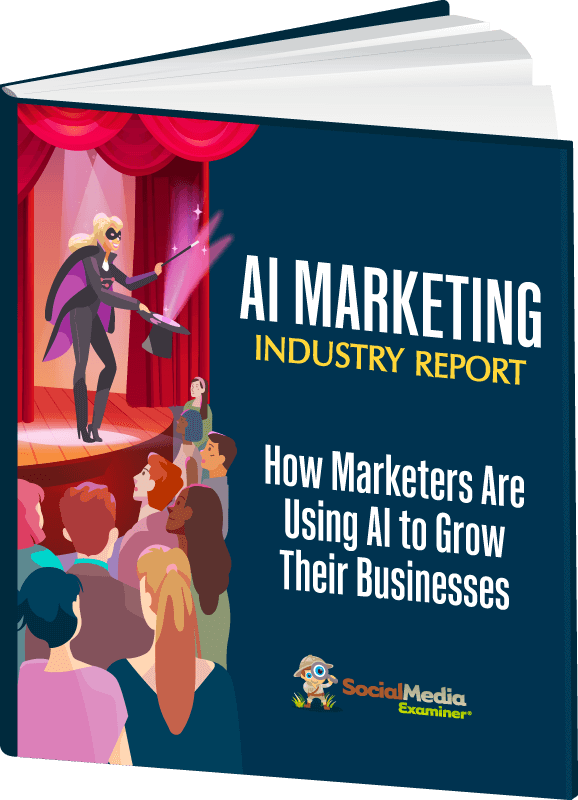
Marketers are rapidly adopting AI to transform their work. Our new 2025 AI Marketing Industry Report surveyed over 730 marketers to reveal the tools, tactics, and trends shaping the industry, including
🔥 90% of marketers save time with AI—discover the top use cases
🔥 The 5 biggest challenges marketers face with AI and how to overcome them
GET THE AI MARKETING INDUSTRY REPORT
